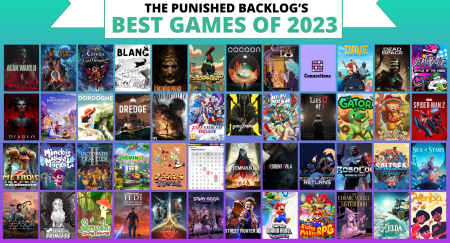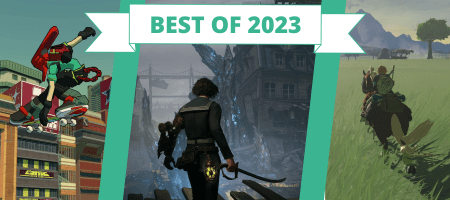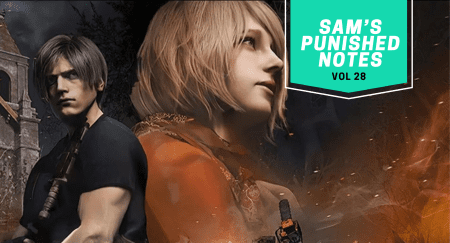What a Year, Huh?
In a weird way, I’ve been simultaneously yearning for and dreading making this Game of the Year Tier List–the fourth of its name–since so many have claimed 2023 is among the greatest years ever in video gaming. On the one hand, I am excited to discuss the many great (and few not-so-great) titles I played over the past twelve months. On the other hand, I feel whatever I present will feel incomplete or substandard, failing to comprehend what it means for a year to be truly “great” for the medium.
I’ve heaped praise on the last few years of releases in previous tier lists, but in retrospect, I probably don’t feel quite as strongly about many of the games I praised in those lists as I do now. Hell, I even said last year was “as good as most years I’ve experienced,” which seems like a ridiculous thing to say now. As much as I’ve relished many of the best games that have come out in 2023, will I feel embarrassed about such laudatory statements a year from now?
Additionally, 2023 has been disastrous for the industry and the media covering it as a whole, with tons of layoffs, platforms shutting down, the end-of-an-era with E3 (finally) announcing its permanent cancellation, and more live service games lost to history. Even in the midst of major revenue booms for big publishers and larger, grander AAA gaming experiences, the current joy and success of the space seems tenuous, almost as though we’re headed towards major changes for which most are unprepared. Is it right to heap praise on a year of good games if everything around them is held together by duct tape?
Ultimately, an end of year list for anything can only capture how someone feels at a particular moment in time. My tier list for 2023, just like every year before it, will only describe my feelings as I write it. Nothing I say in this piece can fully capture 2023 in gaming as a whole. Still, some of this year’s best games were truly inspiring, and hopefully they serve as a harbinger for greatness to come. At the very least, that inspiration and potential glimmer of hope are worth celebrating.
The Rules
With all that said, I really enjoyed this year’s releases, and with aplomb will once again present to you, dear reader, my tier list. The parameters (with some tweaks) are:
- Every game I played this year, including remakes/remasters this time (but not ports), will be placed on a list according to several quality tiers.
- Each tier will list games in alphabetical order, and the best game in each tier will receive special honors (save for the lowest two tiers and the penultimate tier)
- The lowest tier (Anti-Game of the Year) and highest tier (Game of the Year) will obviously each contain only one game.
(For the sake of clarity, here are some notable 2023 releases I have not played: Alan Wake II, Diablo IV, Dave the Diver, Dredge, Assassin’s Creed Mirage, Armored Core VI: Fires of Rubicon, Mortal Kombat 1, Fire Emblem Engage, Blasphemous 2, Advance Wars 1+2: Re-Boot Camp, Pikmin 4, Lies of P, Octopath Traveler II, Final Fantasy XVI, Chants of Sennaar, Persona 5 Tactica, Dead Island 2, Disney Illusion Island, Sonic Superstars, Wo Long: Fallen Dynasty, and Cyberpunk 2077: Phantom Liberty.)
Anti-Game of the Year
The worst game I played this year, period.
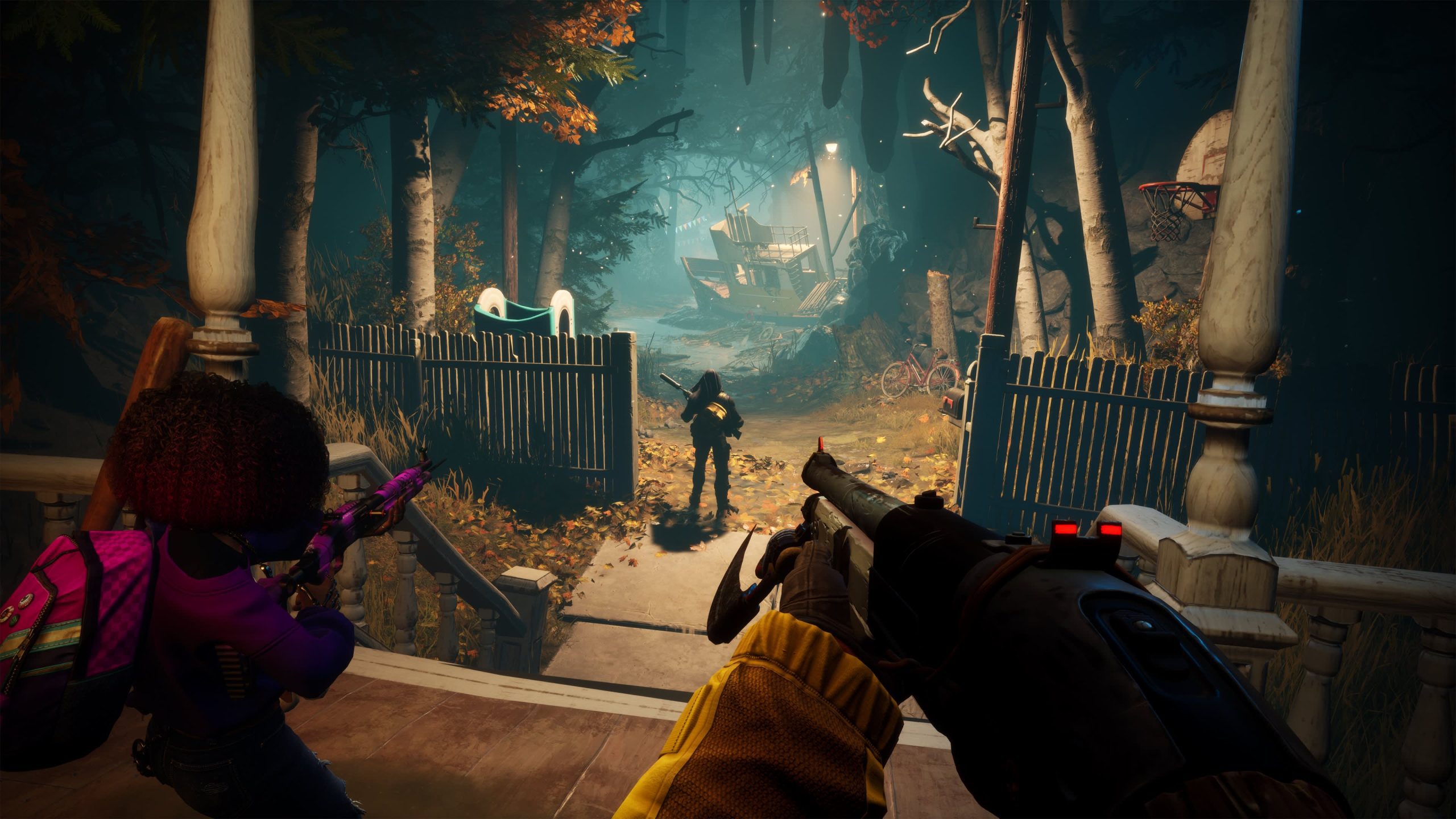
Redfall
Even if Redfall weren’t plagued with tons of bugs and technical issues at launch, it still would be a mindless, uninspired mess of a game. Uncharacteristically, Arkane managed to present a completely bland overworld, simplistic gameplay mechanics, and a story about as riveting as a podcast on the history of C-SPAN. What a total misfire.
Ugh Fine I Guess
This tier includes my (other) least favorite games of the year. These games aren’t necessarily bad (all include some notably positive qualities), but none of them deserve to be honored too far above being “not terrible.”

Exoprimal
Exoprimal isn’t fundamentally bad (the shooting mechanics work fine and the visuals are fairly sharp), but it’s just boring and derivative. I can’t see why anyone would enjoy playing this over the dozens of other multiplayer shooter options available.

Planet of Lana
The adorable art direction brought me in, but inconsistent platforming and lack of compelling worldbuilding pushed me away. Much like Exoprimal, Planet of Lana isn’t badly designed; it just didn’t really do much for me.
Literally Pretty Good
Named after NFL analyst Cris Collinsworth’s confusing description of a decent-but-not-excellent football player, this category is for games that are somewhere between slightly above average and flat-out good. Every game on this list is worth a try, but no masterpieces are to be found here.

F-Zero 99 (Literally Pretty Good GOTY)
This franchise’s Switch comeback may not have been what longtime F-Zero fans had envisioned, but F-Zero 99 mostly pulls off battle royale racing. Even though I still haven’t managed to win an actual race, the basic mechanics and game design are rock solid, and I can definitely see myself returning for future updates.
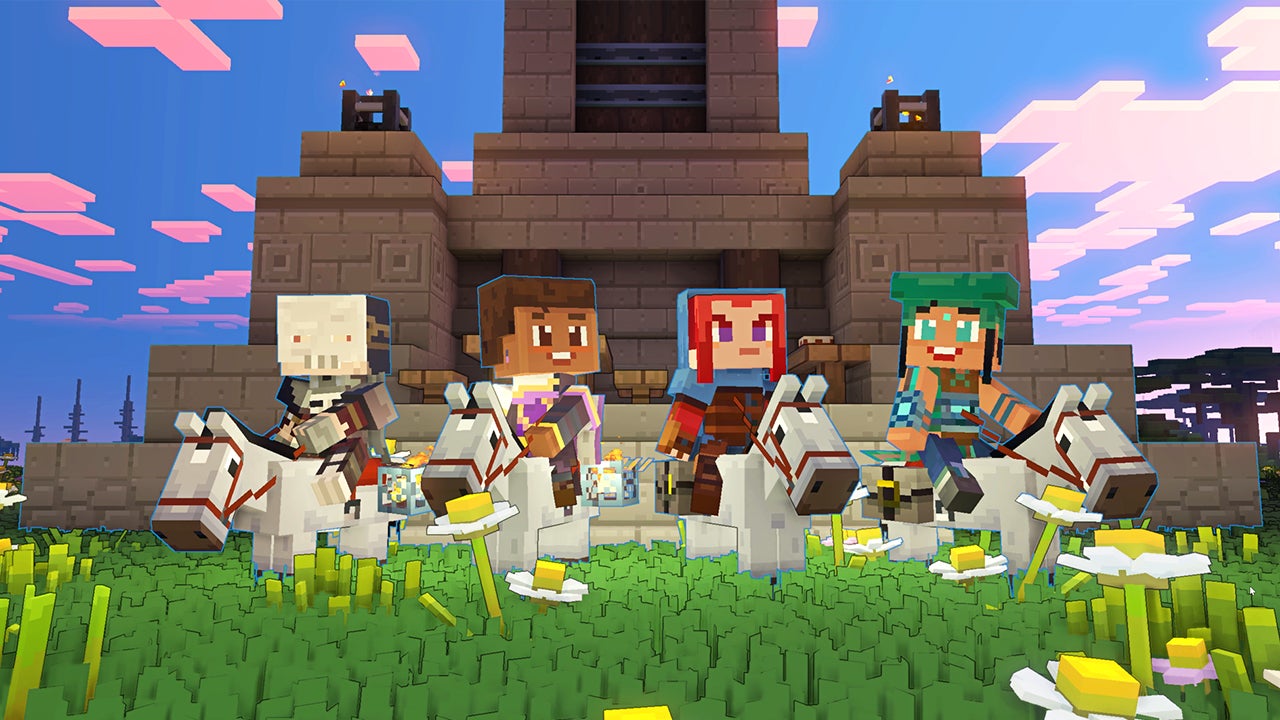
Minecraft Legends
Minecraft Legends was born to be in this tier. Though visually stunning, nothing else about this game is better or worse than “pretty good.” The construction mechanics work well enough. The RTS-lite battle mechanics are about as good as one can reasonably expect from a game largely marketed to children. The PvP multiplayer mode has a lot of potential, but never really rises above being just kind of fine. Minecraft Legends is a perfectly cromulent video game, and that’s all that really needs to be said about it.

MLB The Show 23
The Show continues to produce the best baseball simulation gameplay out there, but there doesn’t seem to be much more to it than that. The Negro League mode is an excellent history lesson with a lot of fun challenges, but MLB The Show 23 doesn’t dazzle much outside of that or push the envelope in other meaningful ways.
Diner Burgers
This tier, formerly known as “Solid As Heck,” includes games that are very good and worth your time and emotional investment, but I would not say are anywhere near being classics. Like this tier’s namesake, the games on this list are like a solid diner burger; not life-changing, but hits the spot.
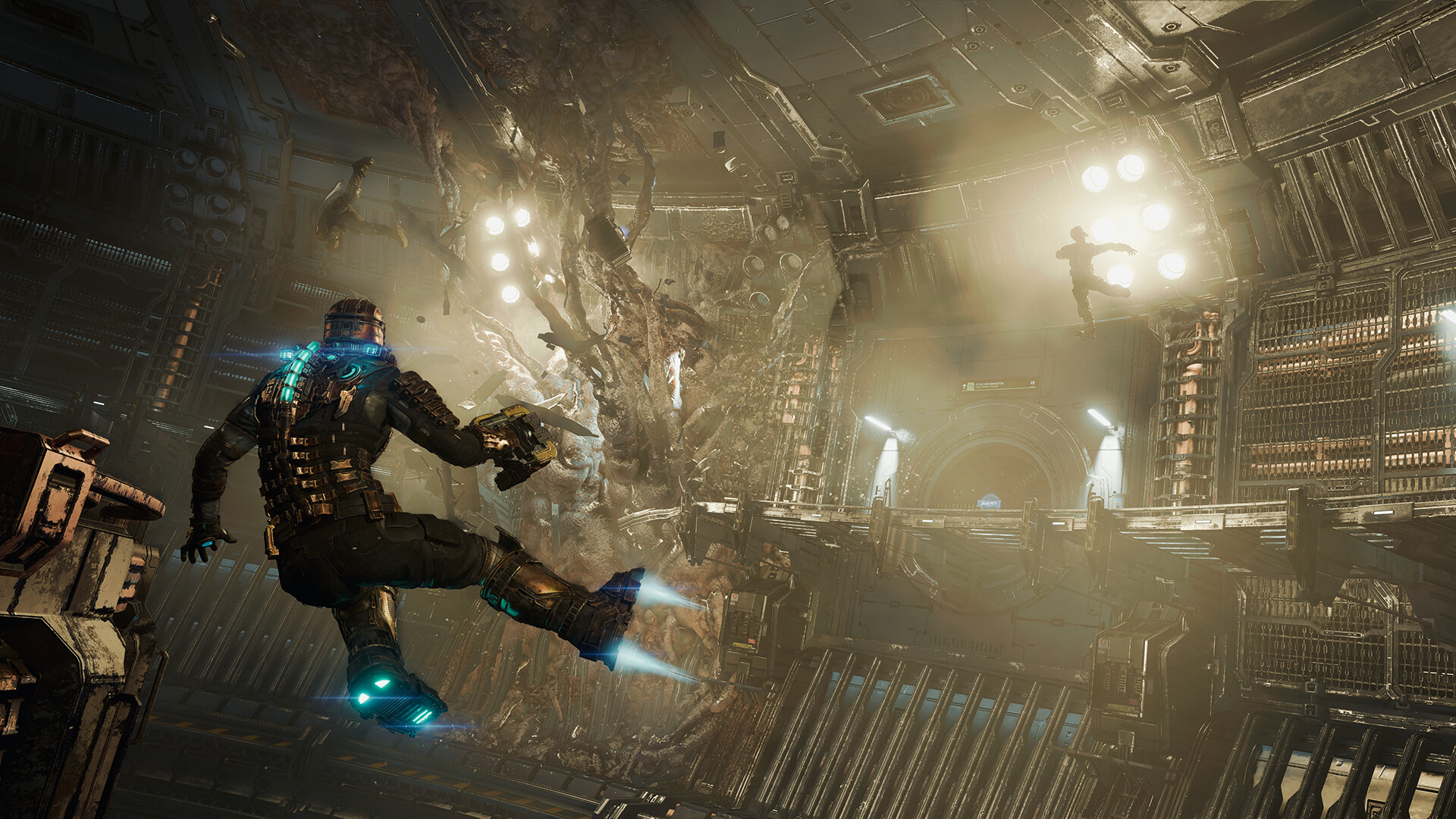
Dead Space
I’m genuinely not sure what I expected from the remake of Dead Space, whose original version I played for the first time last year. Obviously, the graphics are sharper, the frame rate runs at a smooth 60 frames per second on Xbox Series X, and the newly added voice acting for protagonist Isaac is more welcome than I expected. But for the most part, Dead Space is Dead Space, meaning it’s a fantastic action-horror game, though probably a good enough one that a remake wasn’t completely necessary.

Forza Motorsport
While it doesn’t reinvent the wheel (get it?), the latest Forza Motorsport clearly understood the assignment. The game has some of the best racing sim controls I’ve played in the series, gorgeous visuals, and welcome competition enhancements. It’s still the kind of game you’d expect, but a more refined one at that.

Kirby’s Return to Dream Land Deluxe
I’ve long felt that the Kirby series is one of the most consistently good-but-not-great franchises in all of gaming. Last year’s Kirby and the Forgotten Land is a notable exception, and in many ways Return to Dream Land Deluxe is as well. The game has some of my favorite boss battles in the whole series, some really clever level designs, and a cornucopia of additional content and gameplay modes to keep players busy for a while.
At the end of the day though, Return to Dream Land Deluxe mostly exists as an improved version of those aforementioned good-not-great Kirby titles; something with fun, simple gameplay but limited staying power.

Star Wars Jedi: Survivor
Though I still prefer the narrative elements and overall experience of its predecessor, Jedi: Survivor is without question a mechanical upgrade from Fallen Order. The combat is smoother and more varied, every explorable area feels more intricate and laden with worthwhile side activities, and some of the cinematic gameplay sequences are sublime. Really, Survivor’s greatest flaw (outside of obvious performance issues) is that it’s a really solid action adventure game in a year full of truly remarkable ones.

Venba (Diner Burger GOTY)
While a little too short for my taste, Venba is a delightful, heartwarming, and heartbreaking experience, one that believes you can’t understand culture and history without understanding food (and vice versa). The narrative structure feels thoughtfully contained, yet manages to include some really powerful emotional beats, and the actual cooking gameplay really underscores the importance of maintaining recipes over time and passing them down to future generations.
Super Rad!
Now we’re talking! All of these games are really, really good, and I would recommend them to just about anyone. Maybe none of them are quite GOTY material, but they’re all pretty damn great.

Cocoon
Cocoon’s wordlessness may be its greatest asset. Even with mind-bending puzzles, powerful yet minimalist world design, and incredible color contrasts, the fact that this game tells the player absolutely nothing about what’s happening makes every moment that much more fascinating. Months later, I’m still not entirely sure what Cocoon is about, but its striking imagery, haunting sound design, and perplexing environmental architecture continue to stick with me to this day.

Hi-Fi Rush (Super Rad GOTY)
Obviously, there were many games this year that were better than Hi-Fi Rush, but not a lot that were more fundamentally fun. The Saturday Morning Cartoon vibes, excellent combat and platforming mechanics, and strong commitment to joviality and quirkiness made it one of 2023’s loveliest surprises, and one that I hope will inspire future releases in the same vein. If nothing else, Hi-Fi Rush was a welcome callback to an era of creativity that made me fall in love with video games in the first place. (Also, several licensed songs from its soundtrack made my Spotify Wrapped playlist.)

Metroid Prime Remastered
The problems I had with the original Metroid Prime on the GameCube unfortunately remain in Metroid Prime Remastered: too much backtracking, a wonky 3D map, and seemingly random difficulty spikes. That said, my return to Tallon IV reminded me of just how ahead of its time the original title really was. The labyrinthine world design allows for some of the most scintillating exploration I’ve experienced in a 3D game, the boss battles are complex and constantly engaging, and the puzzle-solving is on par with the best of the Metroid series. I’m really glad I gave this one another chance.

Super Mario RPG
Speaking of second chances, the Nintendo Switch remake of Super Mario RPG faithfully retains the charm and whimsy of the SNES original whilst updating the combat and some quality-of-life features just the right amount. I never felt like I was playing a brand new game with this remake, but I never wanted to; so much of what makes Super Mario RPG great is tied to its improbability as a 16-bit game from 1996. The remake compromises on very little of that greatness and thrives as a result.
Hall of Curtis Granderson
This tier is named after former MLB star Curtis Granderson, who had about as good a career a baseball player could have without any real chance of making the Hall of Fame. All of these games are awesome, but just miss being in the GOTY discussion.

Marvel’s Spider-Man 2
Nothing about the latest from developer Insomniac was surprising, really. We all know Peter Parker, Mary Jane, Harry Osborne, and even Miles Morales by now. We’ve seen multiple cinematic depictions of Venom. We know how Insomniac’s take on the IP works by now. And while Kraven the Hunter might not be the most recognizable Spidey villain just yet, he’s not exactly the most obscure one either.
Still, as I’m soaring through New York City with my web wings, the only thought sticking in my head is “this is fucking awesome.” Though Spider-Man 2 does expand upon the offerings in Insomniac’s previous Spider-Man titles in a variety of ways (most notably adding two more boroughs and letting the player switch back and forth between Peter Parker and Miles Morales), its greatest achievement remains its balletic movement and combat mechanics. The main story is fine enough, and the excellent quality of the writing and voice acting make up for any plot shortcomings, but where Spider-Man 2 really lives–really thrives–is in its near-perfect rendering of the superhero experience, where the player feels the power (and the responsibility) within every button they press.
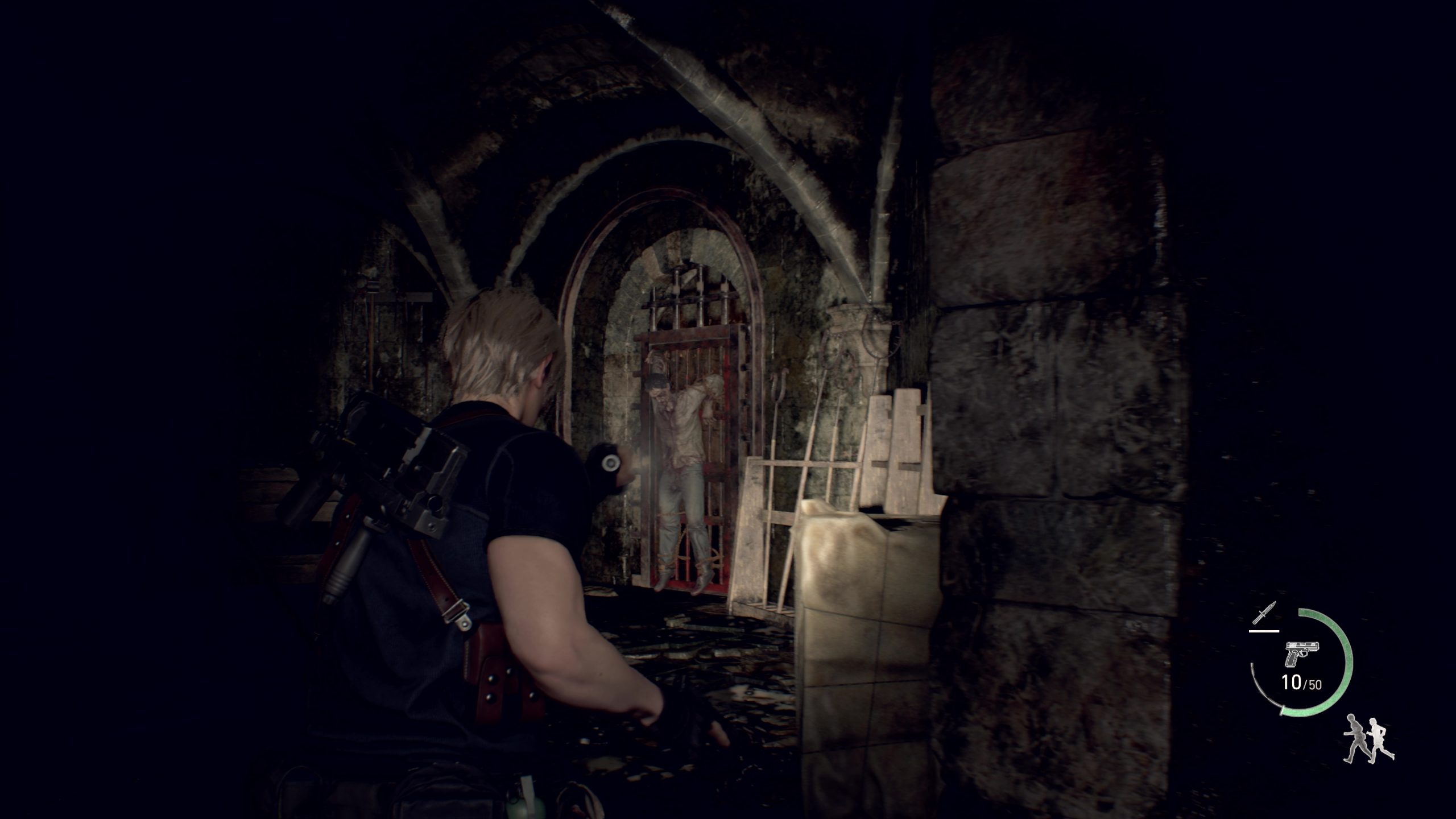
Resident Evil 4
As far as I’m concerned, no remake in 2023 had bigger shoes to fill than Resident Evil 4. The original game was a massive hit and arguably the most influential AAA game of its time. Unlike with previous Resident Evil remakes, the 2005 release didn’t necessarily require major updates, as it still largely holds up mechanically.
Somehow, though, the folks at Capcom reimagined an all-time classic in a way that both felt like a brand new experience and a welcome callback to a different time in gaming. Resident Evil 4 (2023) manages to exist in two different eras at once: one where nonsense action, melodrama, and linearity reign supreme, and another where exploration, detail, and weapon variety matter most. What results is one of the best remakes I’ve ever played, one that feels in conversation with its predecessor more than an attempt to replace it.
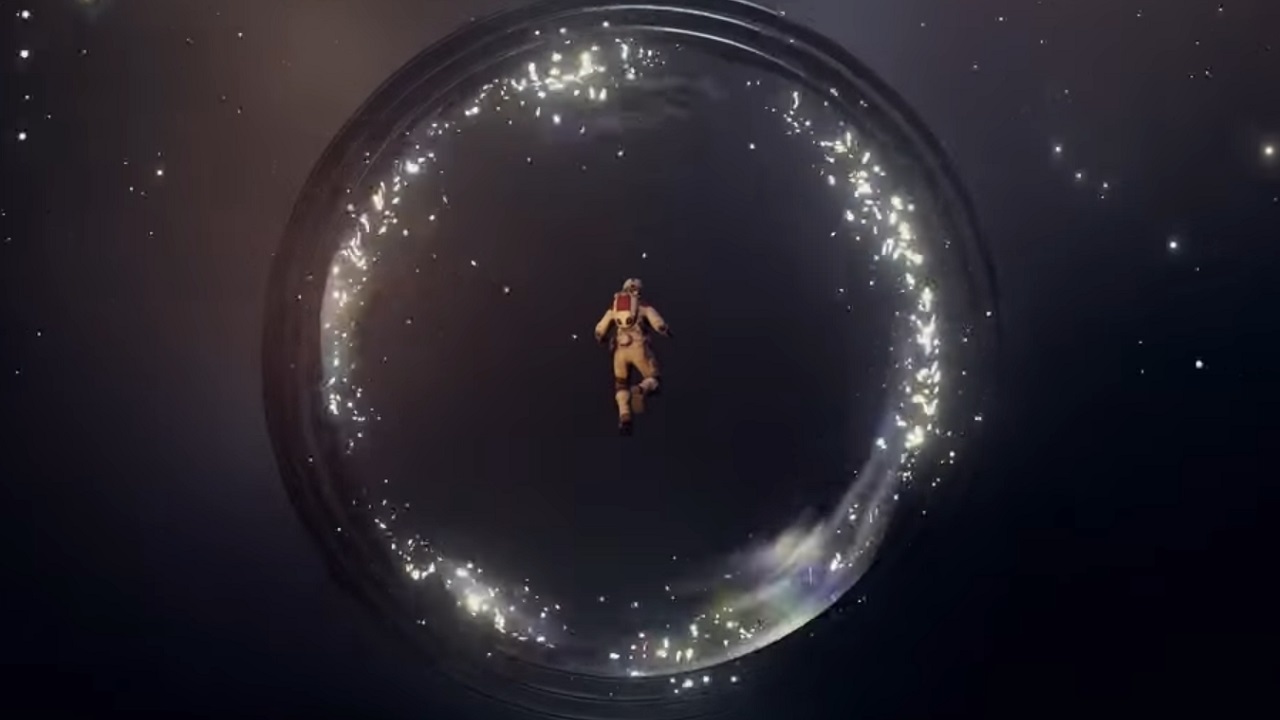
Starfield
Despite its many flaws (and to be clear: its flaws are obvious and undeniable), Starfield has gripped me in a way few other games this year have. I’ve been entranced by its worlds, drawn to its inhabitants, and curious about the mysteries lying within its many, many planets. It can feel like an incomplete, bland, and janky mess at times, yet in its finest moments Starfield is as transcendent and wondrous as any sci-fi RPG I’ve ever experienced.
Moreover, the game’s novel approach to New Game+ (which I won’t spoil here) genuinely moved me, and gave my character both a satisfying conclusion and a reason to continue with his life. The tale of Slade Matrix (my character’s totally cool and awesome name)–from scoundrel to explorer to law-abiding citizen to general lover of life–is still being written, and I can’t wait to continue adding to that tale.

Street Fighter 6 (Hall of Curtis Granderson GOTY)
With its latest entry, Street Fighter regained its place at the peak of Mount Fighting Games. The painterly art direction makes for ebullient and vivacious battles, while the streamlined controls (particularly the new Modern control scheme) manage to challenge the player’s mettle whilst rewarding their creativity. Additionally, new features like the Battle Hub and optional background commentary underscore what has kept Street Fighter relevant for decades: its massive influence on the creation and growth of esports, as well as its continued ability to bring people together.
Most importantly, Street Fighter 6 convinced me that classic fighting franchises always have room to grow whilst maintaining reverence for their forefathers. Even as the Punished Backlog’s Old Games Guy, I truly admire seeing innovation and expansion within the games and series I grew up loving. Street Fighter 6, with its improvements to a well-known formula, makes me excited for the future of fighting games.
Could Be GOTY In Any Year
The cream of the crop. While none of these games are my *actual* game of 2023, each is phenomenal and could have easily been the winner in a different year.
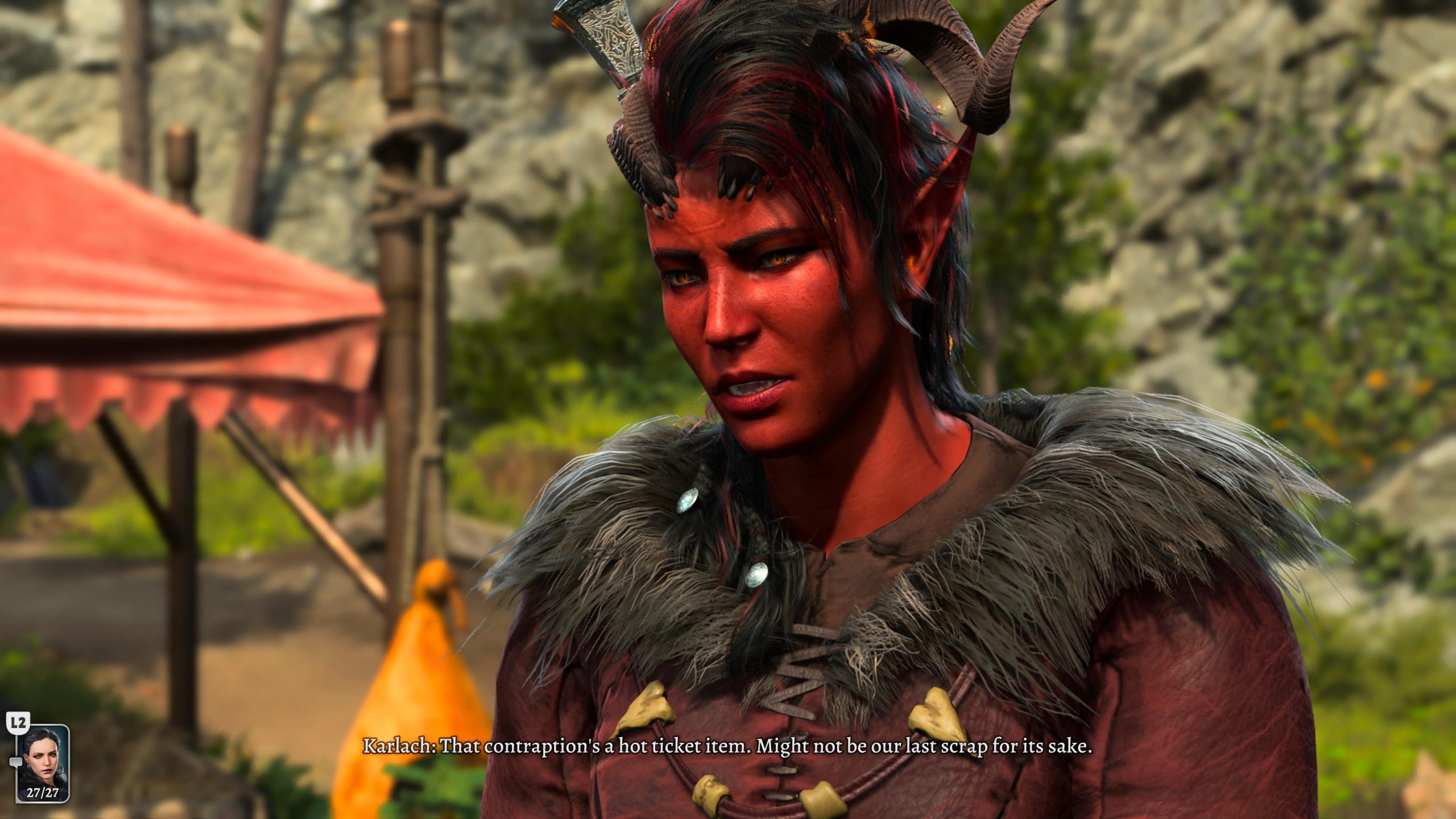
Baldur’s Gate 3
I’m not even ten hours into what many are calling one of the greatest RPGs of all time, but I can already tell something incredible is happening here. Almost every scenario offers multiple avenues of action and storytelling, the depth and intricacies of the combat make each battle a riveting (and occasionally frustrating) chess match, and the outstanding writing and voice acting give each conversation added weight. When I speak with Gale, Astarion, Wyll, or Shadowheart, it feels like I’m actually conversing with a real person, and not just a marionette that talks. When I see a knife sticking out of a hunk of meat, I know there’s a number of things I can do in response to that. Playing Baldur’s Gate 3 feels like I’m playing within a clear and direct set of rules yet, simultaneously, that anything is possible.
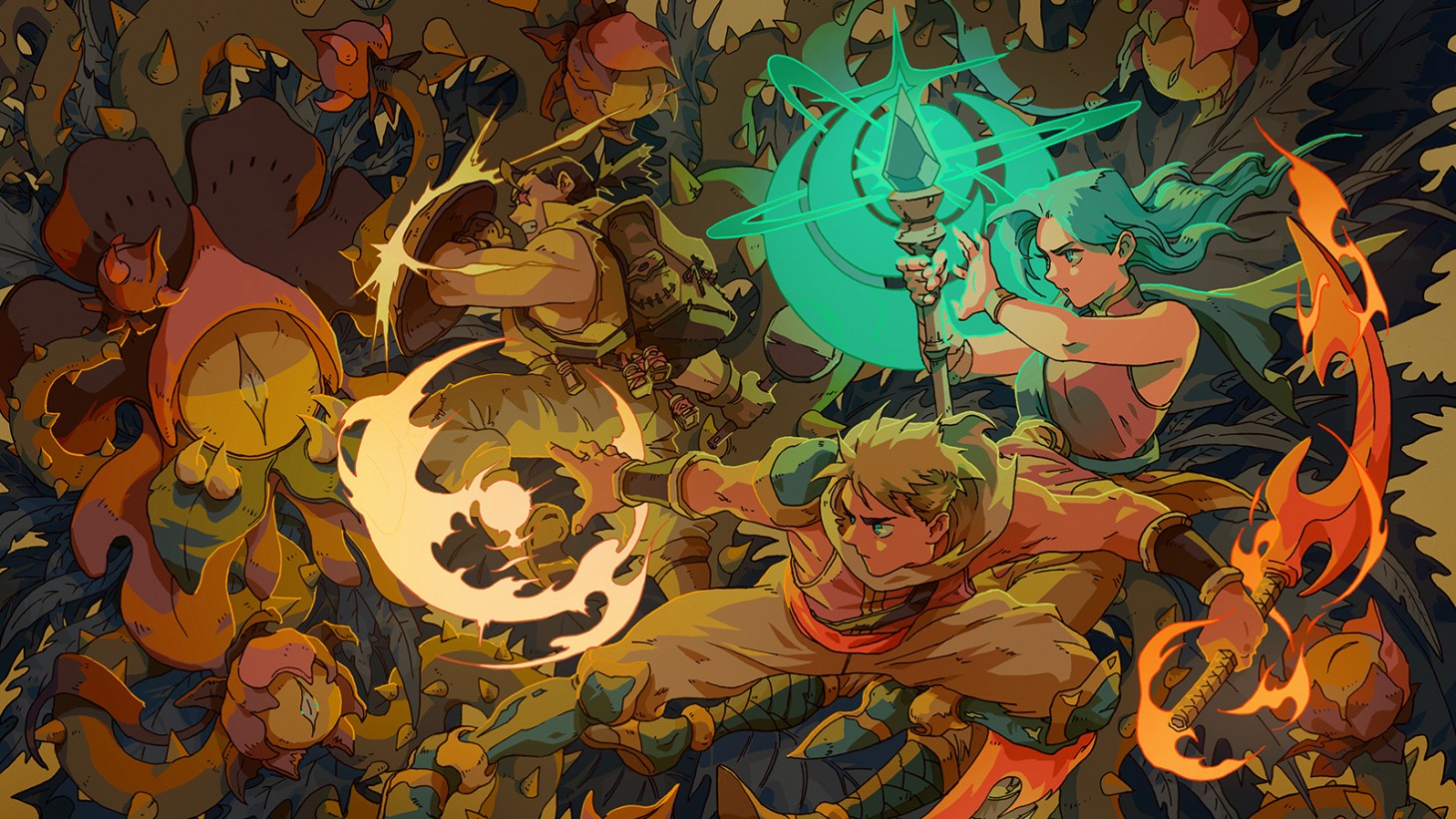
Sea of Stars
I maintain that Sea of Stars, while not the best game of the year, has the best vibes of the year. As much as I enjoyed the brilliant turn-based combat, lovable characters, engaging story, and incredible soundtrack, the one thing I took away most from playing this delightful indie RPG is that it always just felt nice to be lost in its world, even when trudging through creepy and hostile locales. I savored every journey through Sea of Stars’ desolate islands, abandoned castles, dark swamps, and underwater palaces, and I absolutely see myself doing so many times more in the future.

Super Mario Bros. Wonder
There’s really not much more to say: Super Mario Bros. Wonder provides a constant feeling of joy in every single level. My only regret is that I saw all there was to see too quickly.
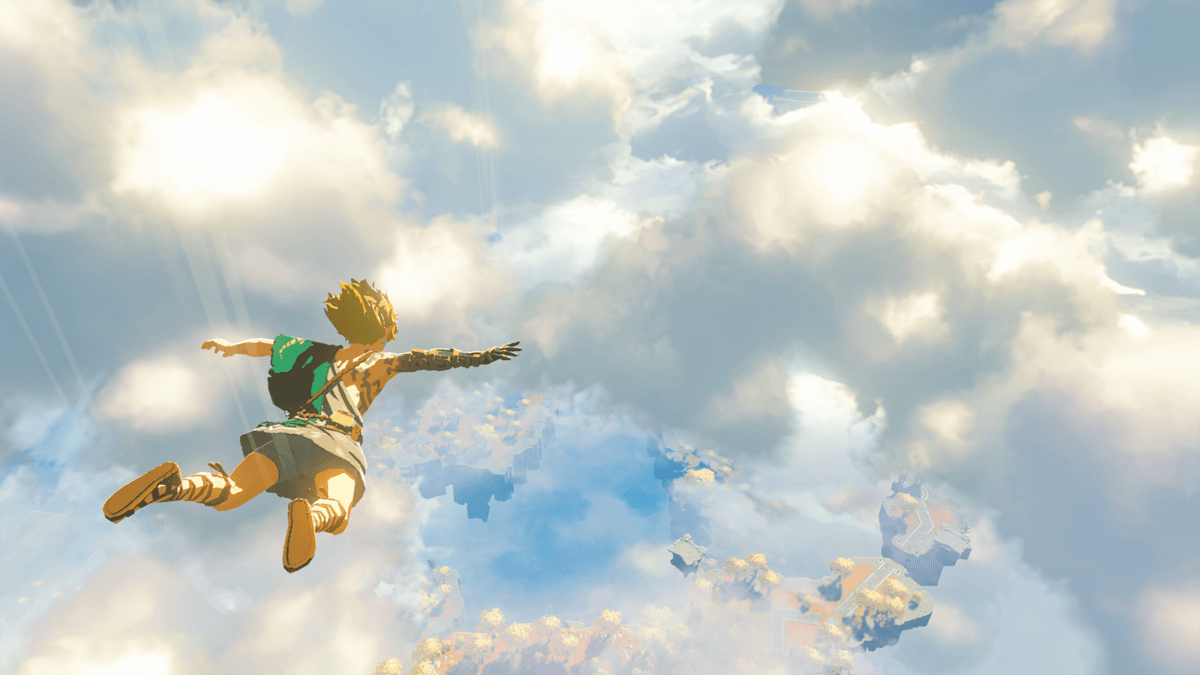
Game of the Year: The Legend of Zelda: Tears of the Kingdom
Breath of the Wild was a revelation, a triumph, a step forward for the medium. And yet, as a lifelong Legend of Zelda fan, I was concerned that a lot of the magic I felt in prior entries–the very soul of the series that made me fall in love with video games–was missing. Six years later, Tears of the Kingdom resurrected that magic, combining it with more modern gaming philosophies to create not just the best title of 2023, but one of the greatest games of all time.
Beyond the vast lands to explore on multiple levels and beyond the wildly inventive tools at the players’ disposal, Tears of the Kingdom presents a vision of Hyrule where everything is connected, everything has thematic and systemic depth, and everything serves a purpose. All of the abandoned mines and throwback gear in the Depths; the beautiful, ancient ruins floating in the skies; the unique flora and fauna in the caves; and the brutal yet awe-inspiring history surrounding each temple all underscore the main story’s themes of celebrating the past whilst simultaneously working to ensure a safer and more prosperous present.
The Zelda games can be self-referential to a fault at times, and in some cases rely a little too heavily on nostalgia. Tears of the Kingdom understands and respects the franchise’s history, yet allows players to build a bridge (sometimes quite literally) to the future. The objects and imagery of the past don’t have to go away forever, but if you want to see growth and progress, you have to look to the skies and reach even higher.
As always, I want to thank everyone who has read my articles (and the Punished Backlog in general) this year, and I want to extend a special thank you to fellow editors David Silbert and Amanda Tien, as well as all the incredible writers (and now podcasters) we have on this site. Wishing everyone a Happy Holidays and a Happy New Year!
Sam has been playing video games since his earliest years and has been writing about them since 2016. He’s a big fan of Nintendo games and complaining about The Last of Us Part II. You either agree wholeheartedly with his opinions or despise them. There is no in between.
A lifelong New Yorker, Sam views gaming as far more than a silly little pastime, and hopes though critical analysis and in-depth reviews to better understand the medium's artistic merit.
Twitter: @sam_martinelli.








